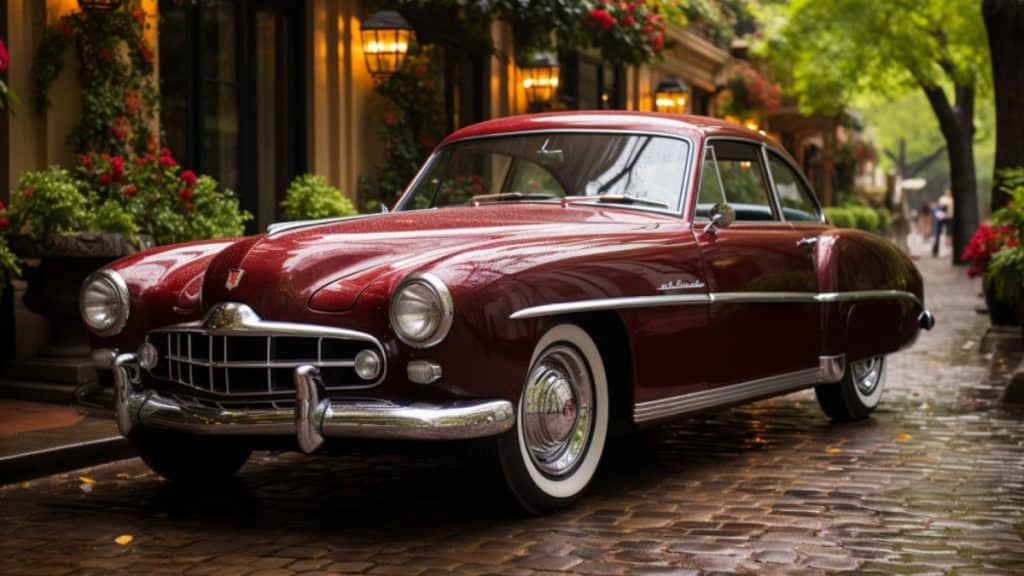In a world dominated by sleek electric vehicles and cutting-edge automotive technology, classic cars continue to captivate the hearts of enthusiasts and collectors. Their timeless appeal transcends generations, drawing admiration not only for their vintage charm but also for the stories and history they embody. But why do these vehicles hold such a significant place in modern culture? Let’s explore the factors that make classic cars an enduring passion for so many.
A Journey Through History
Classic cars are more than just modes of transportation; they are rolling pieces of history. Each vehicle carries with it a story—of the era in which it was built, the innovations it introduced, and the cultural significance it represented. For example, the Mercedes-Benz G-Class, which has become a cultural icon, began as a utilitarian vehicle designed for rugged terrains. Today, vintage models like the G-Wagon are sought after for their unique combination of durability and luxury, offering a glimpse into the evolution of automotive design.
Companies like Expedition Motor Company have recognized the value of preserving these vehicles. Specializing in restoring classic models such as the Mercedes-Benz G-Wagon, they merge traditional craftsmanship with modern enhancements. This fusion keeps the essence of these vehicles alive while ensuring they meet the demands of today’s drivers.
Design That Defies Time
One of the most compelling reasons classic cars remain popular is their design. Unlike the homogeneous styles seen in many modern vehicles, classic cars boast distinctive aesthetics that stand out. From the curves of a 1960s Jaguar E-Type to the rugged edges of a vintage Land Rover Defender, these vehicles are works of art on wheels.
The craftsmanship of classic cars reflects a time when automotive design was driven by passion and ingenuity. Today, modern car enthusiasts and designers often draw inspiration from these timeless forms. Owning a classic car becomes not just a statement of style but also an homage to the artistry of the past.
The Emotional Connection
There’s an undeniable emotional connection tied to classic cars. For some, they represent a nostalgic journey to a bygone era, evoking memories of childhood road trips or dreams of owning a particular model. For others, classic cars are a way to connect with history, allowing them to relive a time when driving was as much about the experience as it was about the destination.
Restoring and owning a classic car is often a deeply personal endeavor. The process of bringing a vehicle back to life—scouring for parts, meticulously refurbishing interiors, and reviving an engine—is a labor of love. This emotional bond is something modern vehicles, with their automated processes and digital interfaces, often fail to replicate.
A Symbol of Individuality
In an age where customization is king, classic cars offer the ultimate canvas for self-expression. Whether meticulously restored to their original glory or modified with modern amenities, these vehicles allow owners to showcase their unique tastes and preferences. The result is a car that isn’t just a means of transportation but an extension of the owner’s personality.
This individuality resonates in a culture that increasingly values uniqueness. Owning a classic car is a statement—a way to stand out in a sea of modern vehicles while celebrating the rich history of automotive engineering.
The Investment Angle
Beyond their aesthetic and emotional appeal, classic cars are also a smart investment. Unlike modern vehicles, which depreciate as soon as they leave the dealership, many classic cars appreciate in value over time. High-quality restorations, like those undertaken by Expedition Motor Company, can significantly increase a vehicle’s worth, making classic cars a desirable asset for collectors and investors alike.
Moreover, classic cars often come with fewer of the electronic components that drive up maintenance costs in modern vehicles. This simplicity can make them more practical in the long run, especially for enthusiasts who enjoy working on their own cars.
The Community Aspect
Classic car culture is built around a vibrant and passionate community. From car shows and meetups to online forums and clubs, enthusiasts bond over their shared love for these vehicles. The camaraderie found in these spaces is unmatched, offering a sense of belonging and a platform to share knowledge, experiences, and stories.
In many ways, owning a classic car is as much about the people you meet along the way as it is about the vehicle itself. The community aspect ensures that the legacy of these cars is passed down, keeping their appeal alive for future generations.
Classic Cars in the Modern Era
In today’s fast-paced world, where vehicles are often viewed as disposable conveniences, classic cars serve as a reminder of the artistry, craftsmanship, and emotion that once defined the automotive industry. They connect us to the past while remaining relevant in the present, offering a sense of continuity in an ever-changing cultural landscape.
For those lucky enough to own or restore one, a classic car isn’t just a possession—it’s a passion. And with companies like Expedition Motor Company leading the charge in preserving these vehicles, their timeless appeal is ensured for generations to come. Whether you’re drawn to the vintage aesthetics, the history, or the craftsmanship, one thing is certain: classic cars will always hold a special place in modern culture.
